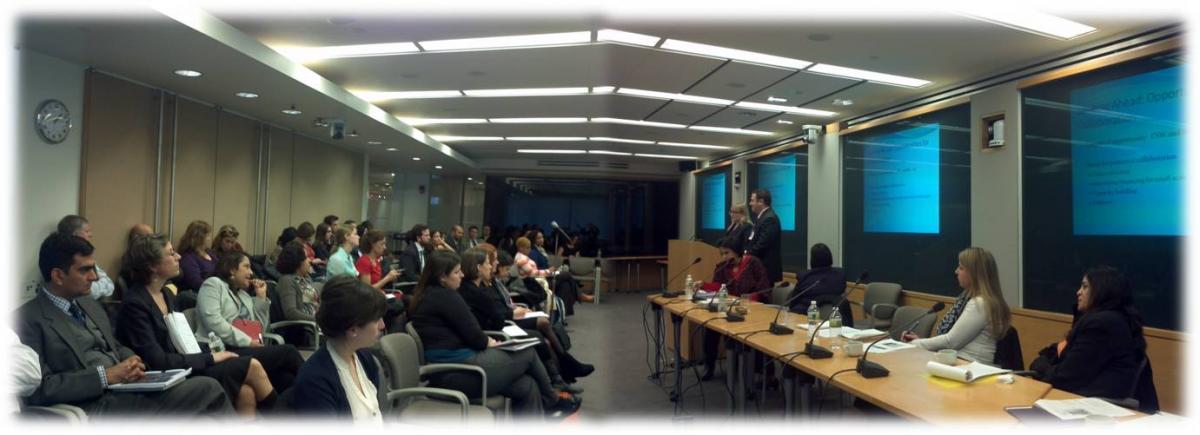News

Women as major consumers of energy? To some, this may seem like an odd question but it is estimated that by 2028 women will be responsible for about two-thirds of worldwide consumer spending. To a large degree, the success of sustainable development will depend on engaging women’s potential to reduce greenhouse gas emissions at the household level. That was one of the key messages of a seminar that brought together representatives from the International Union for Conservation of Nature (IUCN), the Global Alliance for Clean Cookstoves, the US Secretary of State’s Office of Global Women’s Issues, ESMAP, the World Bank, and IFC gathered on January 12. Participants compared notes on their organizations’ efforts to promote gender considerations in energy and climate change programs.
Altogether about 50 participants gathered for the event, “After Durban | Opportunities and Challenges for Rio+20,” organized by ESMAP with support from the World Bank and IFC. Jyoti Shukla, Energy Sector Manager of the World Bank’s South Asia Region, reminded the group of the importance of focusing on impacts on the end-user at the household level when working on energy transmission and infrastructure. Lorena Aguilar, the Senior Advisor on Gender at IUCN, highlighted studies showing gender has significant influence on sustainable consumption. This presents a critical entry point to introduce a gender-sensitive approach for reducing greenhouse gas emissions at the household level.
Justin Sosne, from the US Secretary of State’s Office of Global Women’s Issues said that a milestone had been achieved recently with the US Ambassador-at-Large for Global Women’s Issues, Melanne Verveer, attending a UNFCCC Conference of the Parties (COP) for the first time at Durban, highlighting the importance for gender mainstreaming of participation and inclusion in dialogue and decision-making. Rachel Kastenberg, from the US State Department’s Office of the Special Envoy for Climate Change, noted that “to achieve the sustainable future we all seek, we need to unlock women’s potential as a force for sustainable development and growth that power our economies in the years to come.” Corinne Hart, the Senior Associate focusing on Gender and Markets for the Global Alliance for Clean Cookstoves, pointed out that women can spend almost three years of their lives collecting fuel just for cooking. The Alliance is working with partners like the World Bank, to integrate gender components at various stages of the development of a global market for clean cook stoves and fuels.
Jane Ebinger, Climate Change Program Manager, and Maitreyi Das, Lead Social Development Specialist, both of the World Bank, led the group discussion. Ms. Ebinger remarked that a key opportunity for the Bank in mainstreaming efforts is through its lending portfolio—which has direct impact on the ground. Projecting ahead, she noted that by 2028 women are projected to be responsible for about two-thirds of worldwide consumer spending. Ms. Das remarked that as we look at infrastructure as a service, the gender dimension quickly surfaces and the Bank and practitioners have the opportunity to focus on three themes to address the roles of women and men—advocacy, analytics and operations. There are clear gaps to fill going forward. Still, progress has been made, as demonstrated in the World Development Report 2012 on Gender and Development.
